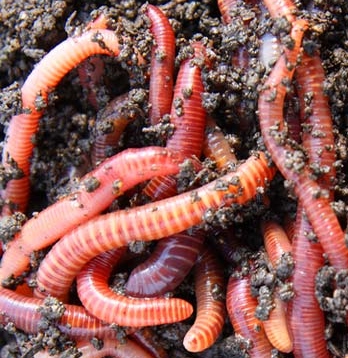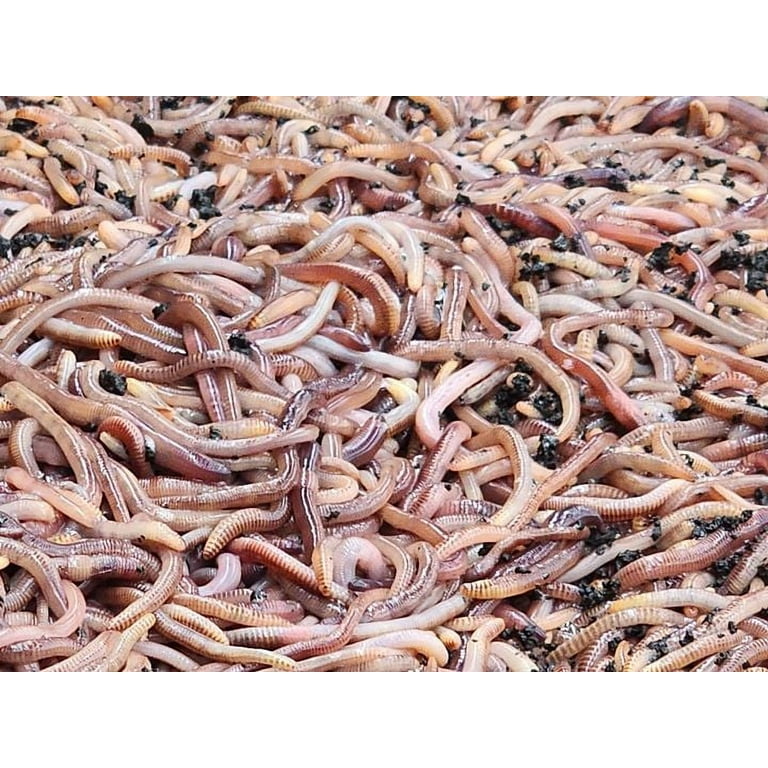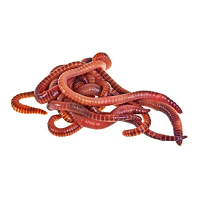Why Red Wigglers Are Necessary for Organic Farming
Red wigglers play a critical function in organic farming, primarily through their special capacity to disintegrate organic products and improve dirt wellness. The level of their influence on agricultural methods and dirt biology increases interesting inquiries regarding the future of natural farming.
Duty of Red Wigglers in Dirt Wellness

In addition, red wigglers enhance dirt framework by producing networks as they tunnel. These networks improve aeration and water seepage, promoting a much healthier root setting. Their task also helps in keeping optimal dampness levels, which is critical for healthy and balanced plant development.

Advantages of Worm Spreadings
Worm spreadings, the nutrient-rich waste matter generated by red wigglers, act as a powerful amendment for natural farming. These spreadings are loaded with crucial nutrients such as nitrogen, phosphorus, and potassium, which are vital for plant development. Unlike synthetic fertilizers, worm spreadings launch nutrients gradually, offering a steady supply over time and minimizing the danger of nutrient leaching and runoff.
In addition, worm castings improve soil framework and aeration, advertising healthier root systems. Their high organic issue web content enhances dampness retention, enabling plants to better endure drought conditions. In addition, worm castings consist of helpful microorganisms that support plant wellness by reducing pathogens and enhancing nutrient uptake.
The application of worm castings can lead to boosted plant returns and boosted top quality of produce, making them an indispensable resource for organic farmers. Their use additionally lines up with lasting farming techniques, contributing to soil fertility without the adverse ecological impacts associated with chemical fertilizers. In general, the consolidation of worm castings into agricultural practices fosters an extra resistant and efficient ecosystem, underscoring the relevance of red wigglers in natural farming systems.

Enhancing Nutrient Biking
Moreover, red wigglers assist to accelerate the mineralization of nutrients, transforming them from inert forms right into bioavailable types that plants can take in. This process is essential for maintaining soil fertility and promoting healthy and balanced crop growth. The existence of red wigglers also encourages a diverse soil community, cultivating an equilibrium of nutrients that supports numerous plant types.
Improving Dirt Framework
The improvement of soil framework is crucial for fostering a healthy farming ecosystem, and the activity of red wigglers significantly adds to this improvement. These earthworms play an important role in freshening the soil and developing a network of networks that help with water seepage and root penetration. As they delve through the soil, red wigglers damage up compressed layers, permitting for better oxygen exchange and promoting microbial task.
Furthermore, the raw material produced from their waste, referred to as vermicast, improves dirt gathering. This procedure develops stable globs of dirt fragments, improving soil porosity and minimizing disintegration (red wigglers). The visibility of red wigglers likewise motivates the growth of helpful fungal networks, which are vital for nutrient uptake by plants
Promoting Lasting Practices
Integrating red wigglers right into chemical-free farming methods not just enhances dirt health but likewise promotes sustainable farming approaches. These earthworms play an important duty in nutrition cycling, changing organic waste right into valuable compost that enriches the dirt. By making use of red wigglers, farmers can effectively decrease dependence on synthetic plant foods, consequently lessening chemical runoff and its detrimental results on ecosystems.
Furthermore, the consolidation of red wigglers urges the practice of reusing natural materials, such as kitchen area scraps and farm waste. This waste reduction technique not only decreases disposal expenses however also cultivates a closed-loop system where nutrients are continuously returned to the dirt (red wigglers). Such techniques are necessary in minimizing climate adjustment, as they enhance carbon sequestration and lower greenhouse gas exhausts
In addition, red wigglers enhance water retention in the dirt, which is important in times of drought. Their burrowing activities produce channels that enable water to pass through much deeper into the ground, thus promoting effective water use. Inevitably, incorporating red wigglers right into chemical-free farming not just sustains biodiversity but additionally aligns with the principles of sustainable agriculture, supplying an alternative technique to food manufacturing.
Final Thought
In conclusion, red wigglers play an essential role in natural farming by dramatically enhancing soil health and wellness and fertility. Therefore, the integration of red wigglers right into farming practices is essential for promoting sustainability and improving general soil top quality.
Comments on “Active red worms: Transform waste”